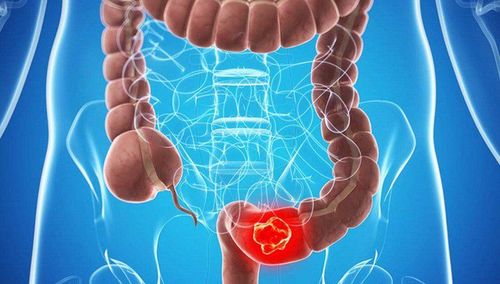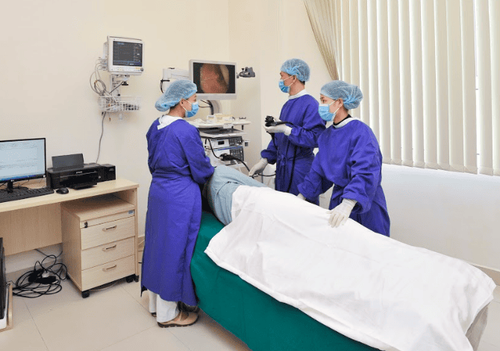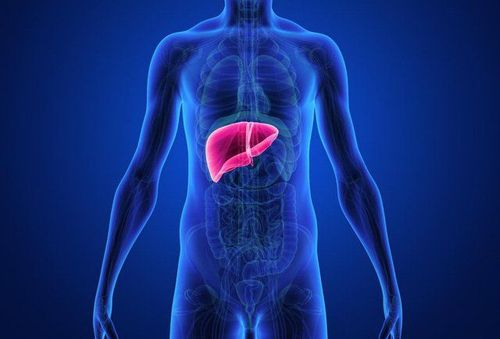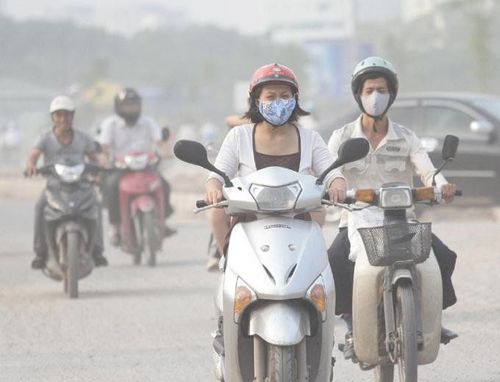This is an automatically translated article.
Adolescent and young adult (AYA) cancer patients are those diagnosed with cancer between the ages of 15 and 39. Although cancer is very rare in patients of this age group. However, every year more than 70,000 AYA patients are diagnosed with cancer. So what are the risk factors for cancer, the risk of cancer in young people? Read on to learn more about the risk factors and causes of cancer in young people.
1. What are the most common cancers in adolescents?
Cancer is not common in young people, but young people are at risk, and there are many types of cancer that can occur in this age group and the treatment of cancer in this age group can be difficult difficult.
Most cancers usually occur in the elderly group. The most common cancers in older adults are lung cancer, colon cancer, skin cancer, rectal cancer, breast cancer (in women) and prostate cancer (in men). Many risk factors for cancer in older adults are related to lifestyle (such as being overweight or obese, smoking or physical inactivity) or other environmental factors. A small portion are strongly affected by changes (also called mutations) in the genes they inherited from their parents.
Cancer that starts in children or adolescents is much less common. The types of cancer that develop in children and teenagers are often different from those that develop in adults. Childhood cancers are often the result of genetic mutations that occur very early in a child's life, sometimes even before birth. Unlike many cancers in adults, cancers in children and adolescents are not closely related to lifestyle or environmental risk factors.
Cancers that occur in young adults are a combination of many that can develop in children, adolescents, and older adults.
Some of the most common cancers in young people are: Breast cancer; Lymphoma (non-Hodgkin and Hodgkin); Malignant tumor; Sarcoma (cancer of connective tissues such as muscle and bone); Cancer of the female genital tract (cervical and ovarian); Thyroid Cancer; Testicular cancer ; Colorectal cancer; Brain and spinal cord tumors.
Even in this age group, some of these cancers become more or less common as people get older. For example, lymphoma is more common before age 25, while breast, cervical, and colorectal cancers become more common after age 25.
Young women are more likely to be diagnosed with cancer than younger men, but young men and women are equally at risk of dying from cancer.
Survival rates for young cancer have not changed much in recent decades, unlike the improvements seen in many cancers in children and older adults. Survival rates can vary greatly, based on the type of cancer and other factors.
2. Risk factors for cancer in young people
What is the risk of cancer in young people? Cancer occurs due to changes (mutations) in the genes inside our cells. Genes, which are made up of DNA, control nearly everything our cells do. Certain genes control when our cells grow, divide into new cells, and die. Changes in these genes can cause cells to grow out of control, which can sometimes lead to cancer.
A risk factor is anything that increases your chances of getting a disease, such as cancer. Different cancers have different risks. In many cases, it's not clear what causes the gene changes that lead to cancer.
2.1 Inherited gene changes Some people inherit genetic mutations from one parent that increase the person's risk of certain cancers. In these people it is sometimes possible to get cancer earlier than is normally expected. Mutations include:
Mutations in the BRCA gene, which increases the risk of ovarian, breast and some other cancers Lynch syndrome (caused by mutations in a DNA mismatch repair gene), which increases the risk risk of colorectal, ovarian, endometrial and some other cancers Familial adenomatous polyposis (caused by mutations in the APC gene), increased risk of colorectal cancer Li-Fraumeni syndrome ( often caused by mutations in TP53), which increases the risk of some leukemias, sarcomas, and some other cancers. However, most cancers in young adults are not caused by inherited gene changes.
2.2 Acquired Gene Changes In older people, changes in genes put them at increased risk of cancer throughout their lives. Some changes in this gene happen for no apparent reason. But most cancers are linked to lifestyle risk factors such as being overweight, smoking, not getting enough exercise, unhealthy eating, and drinking too much alcohol. Exposure to toxic things in the environment, such as air pollution, radon, chemicals in the workplace, or radiation during medical procedures or tests, these factors also play a role in a number of cancers in adults.
These types of risk factors often take many years to affect cancer risk, so they are not thought to play an important role in cancers in children, young adults, and adolescents. year.
However, there are still some causes of cancer in young people. For example:
Exposure to ultraviolet (UV) rays from the sun or from tanning beds can increase the risk of melanoma and other skin cancers. Infection with certain types of human papillomavirus (HPV) can increase your risk of cervical cancer and certain other diseases. Human immunodeficiency virus (HIV) infection may increase the risk of non-Hodgkin lymphoma, Kaposi's sarcoma, and certain other cancers. Treatment with chemotherapy or radiation for childhood cancer may increase the risk of a second cancer, especially leukemia, later in life. However, these and other known risk factors probably account for only a small fraction of overall young adult cancers. Many of the gene changes that lead to cancer in young people may just be random events that sometimes occur inside cells with no external cause.
3. How to prevent the risk of cancer in young people
Limit lifestyle- and environmental-related risk factors
Lifestyle-related risk factors are not thought to play much of a role in cancer in young adults. Certain environmental factors, such as radiation exposure, are associated with cancer risk in young people. But some exposures may not be avoided, such as if a child or teen needs radiation therapy to treat cancer.
However, there are some things you can do to reduce your lifetime risk of certain types of cancer, such as:
Don't smoke Achieve and maintain a healthy weight Limit exposure time sun exposure and avoiding tanning salons Limiting sexual partners and using safe sex practices, may reduce the risk of human papillomavirus (HPV) and human immunodeficiency virus Human (HIV) Although lifestyle and environmental risk factors do not have a major effect on cancer in young adults, exposure to these risk factors during adolescence and Young adults may still have an increased risk of cancer as they age. It is important to develop and maintain healthy habits early in life, such as not smoking, staying at a healthy weight, staying active, and eating a healthy diet. Healthy habits like these can also reduce your risk of many other types of health problems later in life.
* Screening to help prevent some cancers
Cancer screening is testing for a disease like cancer in people who don't have any symptoms. Screening for certain types of cancer, such as cervical and colorectal cancer, can actually help find some precancerous changes before they have a chance to become cancerous.
The risk of cervical cancer is very low in people under 25 years of age. This risk increases with age. The American Cancer Society recommends that people with a cervix begin cervical cancer screening at age 25.
Colorectal cancer is much more common in older adults, so screening is not is recommended for people at average risk until age 45. But in people who are known to be at high risk, such as those with certain genetic diseases or a family history, screening may be possible. suggested earlier - sometimes as early as the teen years.
* Vaccines help prevent cancer
Some vaccines are made to reduce the risk of cancer. For example, vaccines can help prevent infection with the human papillomavirus (HPV), which is the same group of viruses linked to cervical cancer and some other cancers.
These cancer-preventing vaccines work best if given at a young age and are recommended for children between the ages of 9 and 12. Teenagers and young adults ages 13 to 26 who have not been vaccinated. It's better to get vaccinated as soon as possible.
* Preventive surgery
It is rare for people to inherit genetic mutations that make them susceptible to certain types of cancer at an early age. In such cases, after a thorough examination and tests, their doctor may decide to surgically remove an organ before cancer has a chance to grow there. Again, this is not common.
Please dial HOTLINE for more information or register for an appointment HERE. Download MyVinmec app to make appointments faster and to manage your bookings easily.
References: cancer.org, roswellpark.org












